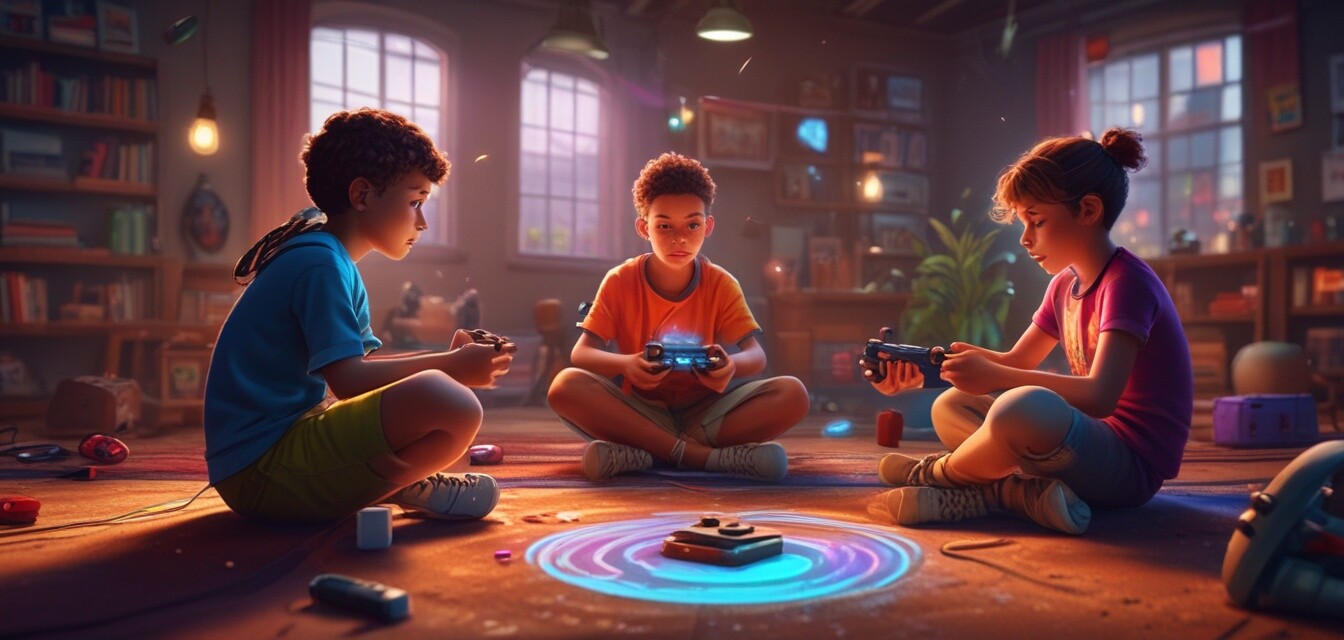
How Video Games are Helping Kids Develop Social Skills
Key Takeaways
- Video games encourage teamwork and collaboration.
- Many popular titles include social features that improve communication skills.
- Gaming can build empathy and understanding in children.
- Competitive gaming can teach kids how to handle wins and losses gracefully.
- Online interactions provide opportunities for social learning.
The world of video games has evolved significantly over the years, transitioning from solitary experiences to interactive, social environments. In 2025, games are not just a source of entertainment; they are powerful tools for helping kids develop essential social skills. This article delves into how video games are supporting social growth in children through cooperative gameplay, communication, and community building.
The rise of social gaming
As online multiplayer gaming grows in popularity, children today are more connected than ever. Platforms and games allow them to collaborate with friends and even meet new ones from around the globe. Here are some factors contributing to the rise of social gaming:
- Advanced collaboration tools
- Diverse gaming communities
- Accessible online platforms
- Variety of genres catering to different interests
Examples of popular games with social engagement
Many popular video games today incorporate features that enhance social interaction. Let's explore some trends that highlight this engagement:
| Game Title | Social Feature | Benefit |
|---|---|---|
| Fortnite | Team-based gameplay | Encourages teamwork and strategy development |
| Among Us | Communication and deduction | Boosts critical thinking and negotiation skills |
| Roblox | User-generated content and chat | Promotes creativity and social interaction |
| Minecraft | Collaborative building | Enhances cooperation and problem-solving |
The role of communication in gaming
Effective communication is essential in both gameplay and real-life situations. Video games often require players to communicate effectively, whether through chat, voice communication, or in-game signals. Here’s how gaming fosters these important skills:
- Players learn to convey their thoughts and ideas clearly.
- Cooperative missions require strategic discussions.
- Feedback is crucial in competitive scenarios.
Building empathy through shared experiences
Games often place players in situations that require them to understand and respond to others' feelings. This shared experience can enhance empathy in children, allowing them to connect with others on a deeper level.
Handling competition and conflict
Aside from fostering teamwork, video games also teach kids about healthy competition and conflict resolution. Players learn to navigate wins and losses gracefully, which is important for their overall emotional development.
Pros
- Encourages collaboration and teamwork.
- Improves communication skills.
- Helps in building empathy.
- Teaches children how to handle competition and failure.
- Connects kids from diverse backgrounds.
Cons
- Overdependence on gaming for social skills development.
- Potential for negative interactions online.
- Risk of addiction to screen time.
Conclusion
The landscape of social interaction is changing, and video games have become integral in helping kids develop important social skills. By fostering communication, teamwork, and understanding, gaming is prepping the next generation for a connected world. To explore more about products that enhance this experience for children, check out our Kids' Educational Electronics or our selection of Gaming Consoles.
Further Reading
To stay up to date with the latest trends in gaming and children's electronics, visit our blog section on News and Trends or explore our comprehensive Buying Guides for the perfect gaming experience.